Covid-19: The virus that changed life as we know it
- Published
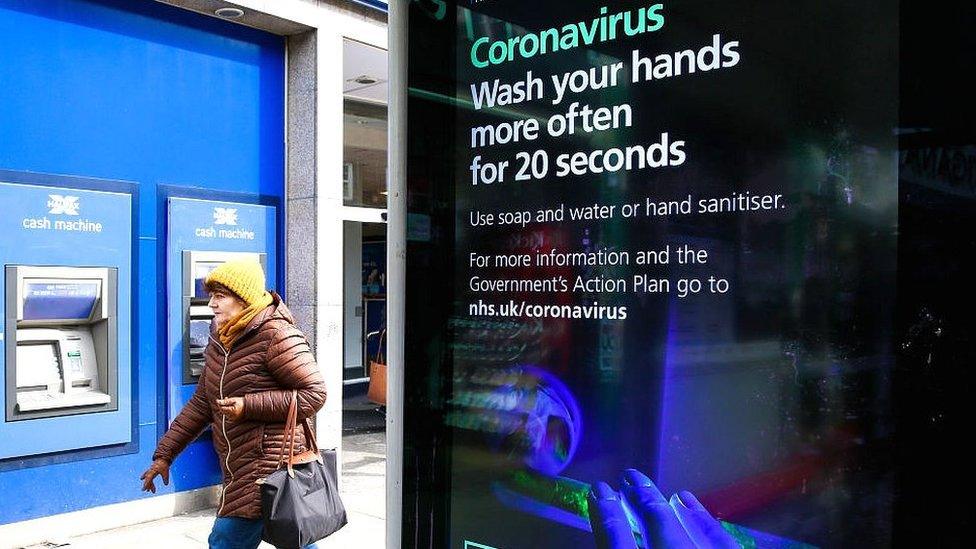
The first case of coronavirus in Scotland was confirmed only three weeks ago.
Since then a remarkable chain of events have unfolded creating an unprecedented climate of uncertainty.
We take a look back on three weeks that have changed almost every aspect of life in Scotland.

1 March
The first case of coronavirus was confirmed in a Scottish government press release, external sent out shortly before 19:30.
It said the patient, from the Tayside area, was being treated in isolation having recently travelled home from Italy.
Until this point there had been a total of 698 negative test results north of the border since the start of the outbreak in Wuhan, China.
First Minister Nicola Sturgeon said: "Scotland is well-prepared for a significant outbreak of coronavirus but there is currently no treatment or vaccine.
"Early detection measures will continue to be vital in helping to prevent the spread of the virus."
It later emerged the first case was an employee of Food Standards Scotland.
2 March
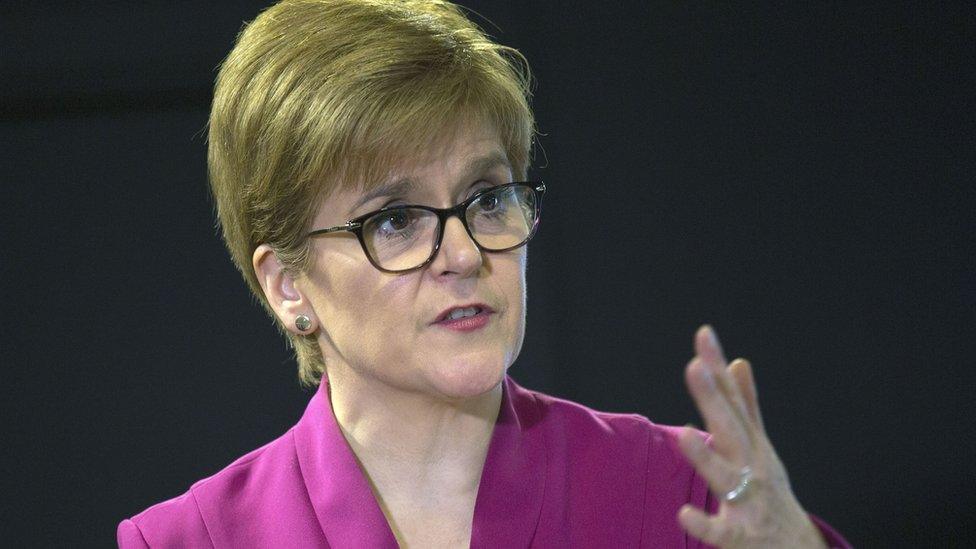
The first minister reiterated the need to ramp up social distancing
The Scottish government held a media briefing at St Andrew's House in Edinburgh with the first minister and chief medical officer.
Nicola Sturgeon said the patient had followed the correct protocols by reporting their concerns over the phone and self-isolating before they were admitted to hospital.
But Ms Sturgeon added that as more patients were confirmed, they would not be admitted to hospital unless there was a "clinical need".
Dr Catherine Calderwood said 80% of people in Scotland would have a mild form of the illness but 4% could require hospital treatment.
She also revealed that experts did not expect to see large numbers of cases for "probably a couple of months from now".
6 March
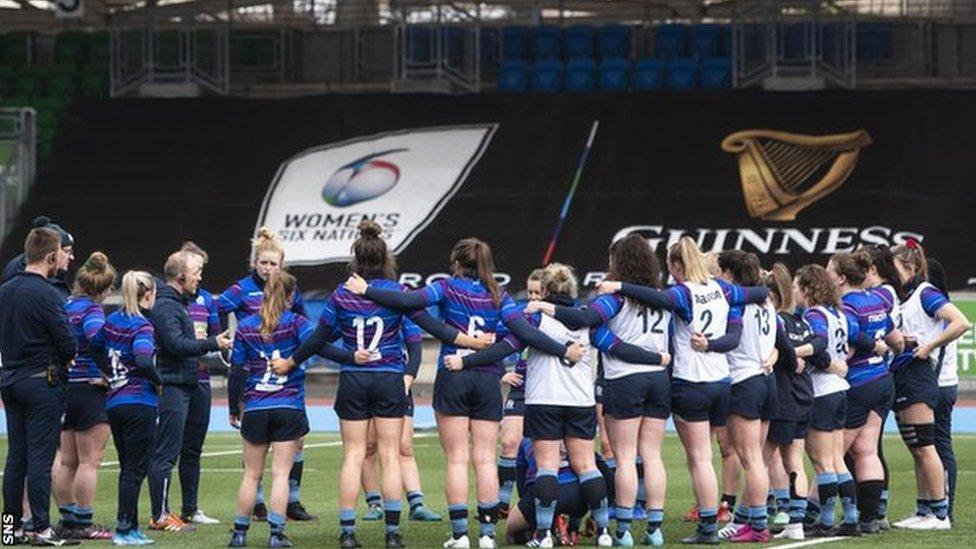
Scotland Women trained at Scotstoun Stadium on Friday before Saturday's match was called off
The number of people infected with the virus in Scotland reached double figures after increasing from six to 11.
Meanwhile, Scotland Women's Six Nations match with France at Glasgow's Scotstoun Stadium became the first major sporting casualty after a home player contracted coronavirus.
Scotland women's previous game was called off over Covid-19 fears.
The squad were in Italy when that match, which was due to take place in Legnano, north-west Milan, was cancelled hours before kick-off on 23 February.
11 March
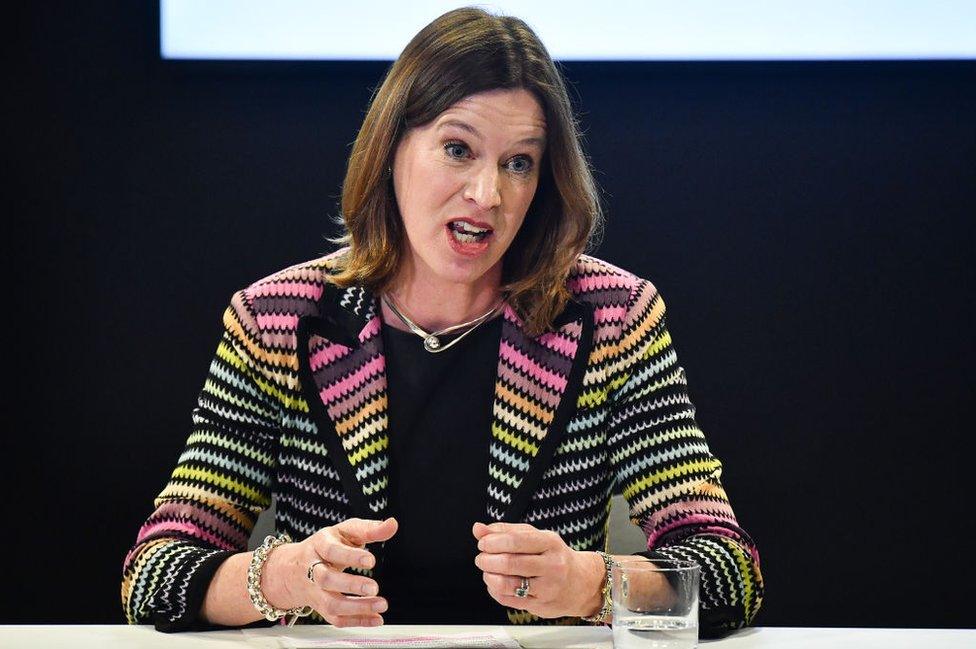
Dr Catherine Calderwood, Scotland's chief medical officer
The first case of coronavirus transmitted within the community was detected in Scotland.
Until now cases of the virus had been traced to people who had travelled to affected areas, such as northern Italy.
Chief medical officer Dr Catherine Calderwood said although community infections had been expected, Scotland remained in the "containment phase".
The development was announced by the Scottish government on the day the World Health Organization (WHO) labelled the outbreak a pandemic.
Meanwhile, in Westminster Chancellor Rishi Sunak used his Budget speech to unveil a £30bn package to boost the economy and get the country through the outbreak.
12 March
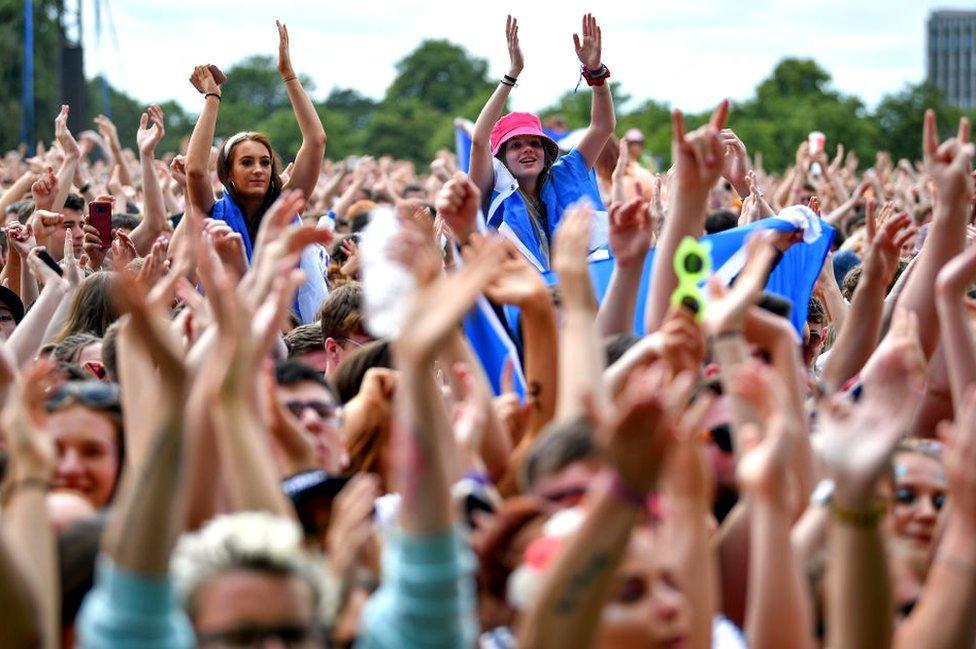
Events involving more than 500 people - indoor and outdoors - should not go ahead according to Scottish government guidance
The first minister announced gatherings of more than 500 people should be cancelled.
Nicola Sturgeon said this was to free up emergency services, including police and ambulance crews, to deal with the pandemic.
She said it was not yet necessary to close schools, but advised all overseas school trips should also be cancelled.
The announcement came as the Scottish government confirmed the country had entered the "delay phase" of dealing with Covid-19.
13 March
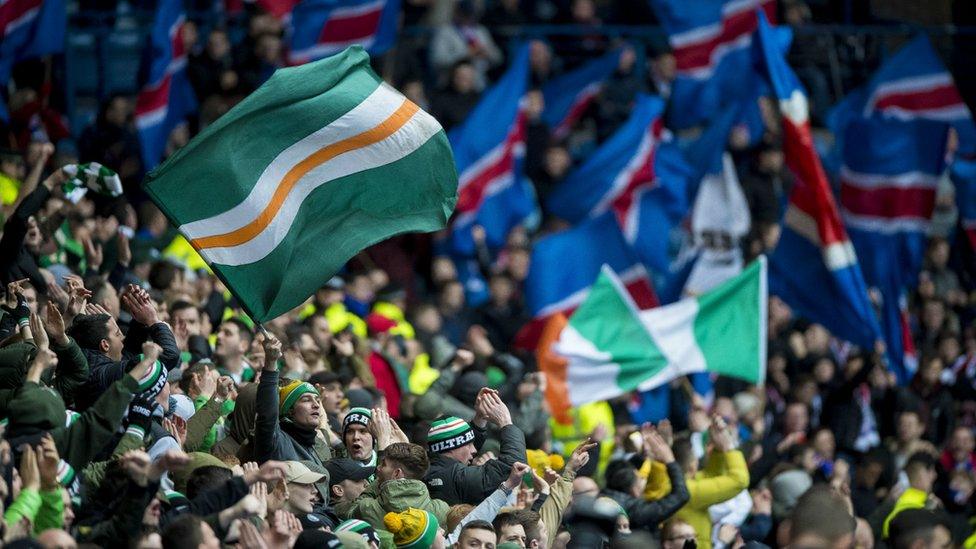
The Scottish football season was last week postponed indefinitely due to the pandemic
An elderly patient with underlying health conditions becomes the first person in Scotland to die after testing positive for Covid-19.
The news was announced after the total number of cases increased to 85.
On a day of major developments, the Scottish football season was postponed indefinitely and Scotland's Six Nations match with Wales was also called off.
Other postponements included the Edinburgh Marathon, Radio 1's Big Weekend in Dundee and the annual Tartan Day parade in New York.
Amid major concerns about the long term economic impact of the pandemic, Edinburgh Airport warned it could be facing "close to zero" passenger demand in the coming months.
15 March
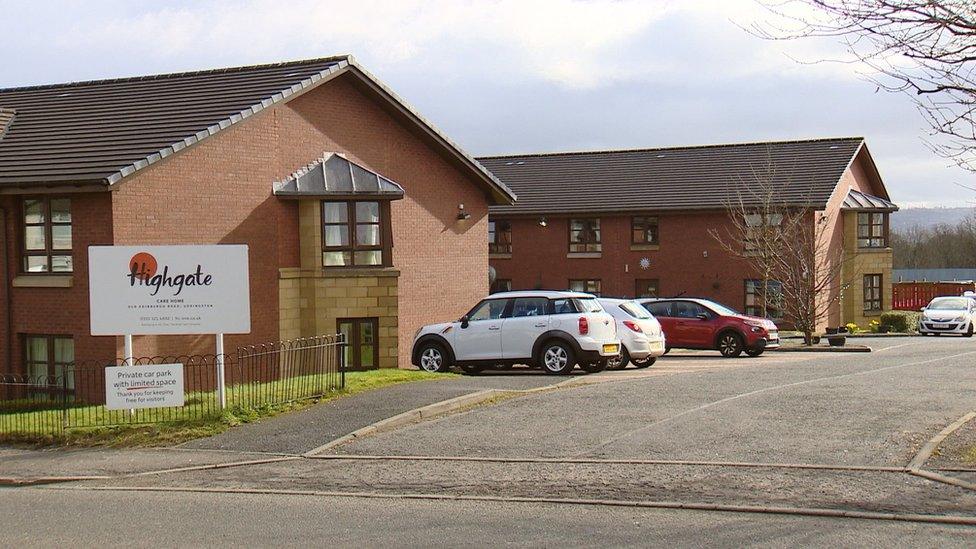
Scottish Health Secretary Jeane Freeman said the NHS in Scotland was seeking to double the number of intensive care beds to cope with the outbreak.
It also emerged six cases of Covid-19 had been confirmed at a care home in North Lanarkshire.
Residents of Highgate Care Home, near Uddingston, were closely monitored and strict infection control measures put in place.
NHS Lanarkshire said all relatives and staff were being informed of developments.
Meanwhile, UK Health Minister Matt Hancock said every Briton over the age of 70 would be told "within the coming weeks" to stay at home for an extended period to protect themselves from coronavirus.
16 March
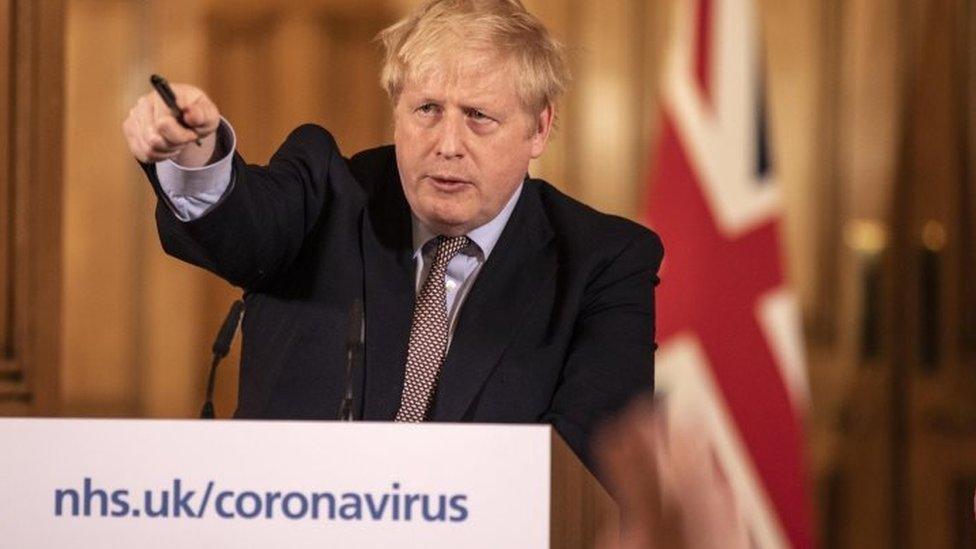
The enormity of the pandemic was laid bare during two sombre press conferences in London and Edinburgh.
Prime Minister Boris Johnson said everyone in the UK should avoid "non-essential" travel and contact with others to curb the spread of the virus.
Mr Johnson also said people should work from home where possible while people in at-risk groups would be asked within days to stay home for 12 weeks.
More than 1,500 people tested positive for the virus in the UK - but the actual number of cases was estimated to be between 35,000 and 50,000.
First Minister Nicola Sturgeon told the media "life will change significantly" and she emphasised the need for every citizen to reduce all non-essential social contact.
Households were also told to self-isolate for 14 days if one member had symptoms - either a new cough or fever.
At a briefing earlier in the day the Scottish government warned mass gatherings could be off for up to four months.
17 March
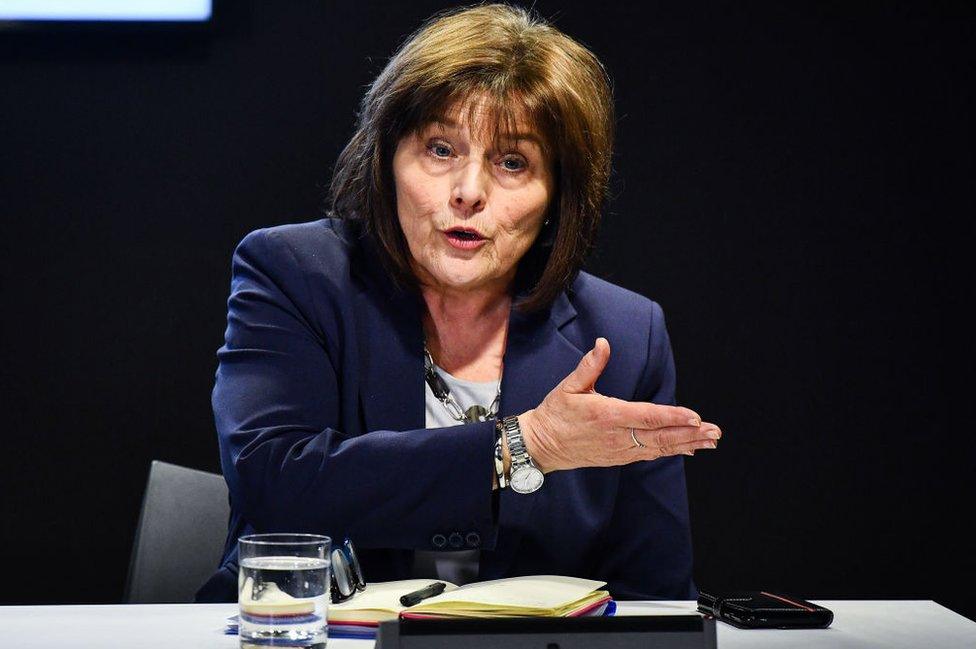
Jeane Freeman, Scottish health secretary
The Scottish government's daily update included confirmation of the second Covid-19 death, while the total number of cases reached 195.
The patient was being treated by NHS Greater Glasgow and Clyde, where the highest number of positive tests in Scotland were recorded.
Minutes after the figures were published, Health Secretary Jeane Freeman told MSPs the NHS in Scotland was now on an "emergency footing".
All non-urgent elective operations were suspended in a bid to help the service double its intensive care capacity.
In sport, Uefa announced Euro 2020 was postponed until 2021 and the SFA cancelled the Scottish Cup semi-finals and final.
Horseracing, including the Scottish Grand National, was called off until the end of April.
18 March
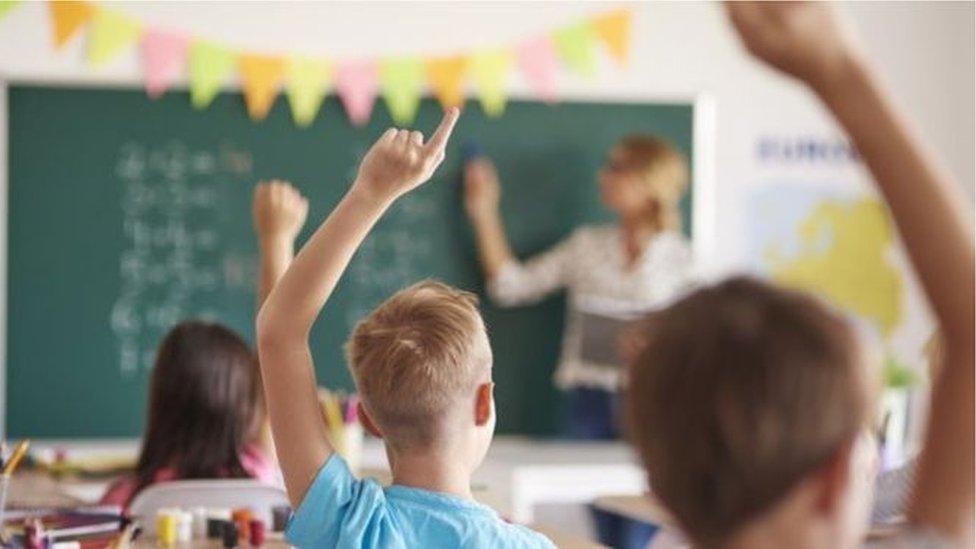
Education dominated the headlines on a day when it emerged a third Scottish patient had died after being diagnosed with Covid-19.
The first minister announced schools and nurseries across the country would close from the end of the week and might not reopen before the summer.
The Scottish government also confirmed it was no longer planning to hold an independence referendum this year due to the pandemic.
In other developments, the economy secretary pledged to replicate measures announced by the UK government to support business during the outbreak, dentists were told not to perform some routine procedures and churches said only close family should attend funerals in the current climate.
19 March
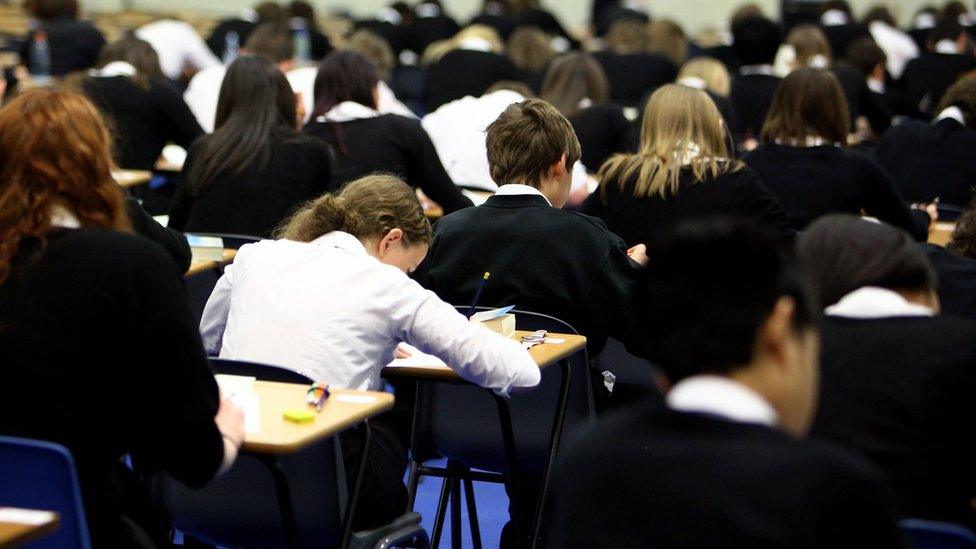
For the first time in history national exams are cancelled
Education Secretary John Swinney confirmed exams for Scottish school pupils would not take place for the first time since the system was put in place in 1888.
Mr Swinney told MSPs the "unprecedented" move was a measure of the "gravity" of the situation caused by the coronavirus outbreak.
He acknowledged the significance of the announcement and added: "It is an unprecedented one in unprecedented times."
A "robust and credible" certification model based on course work, teacher assessment and prior grades would be put in place.
It is anticipated awards would be made by 4 August so students could secure entrance to further or higher education.
Meanwhile, the first minister confirmed the number of Covid-19 deaths had doubled to six and the total number of cases stood at 266.
In business, Edinburgh Airport said it was in talks with staff to shed at least 100 jobs and the North Sea oil and gas industry warned the sector was in a "paper thin" position with oil prices tumbling.
20 March
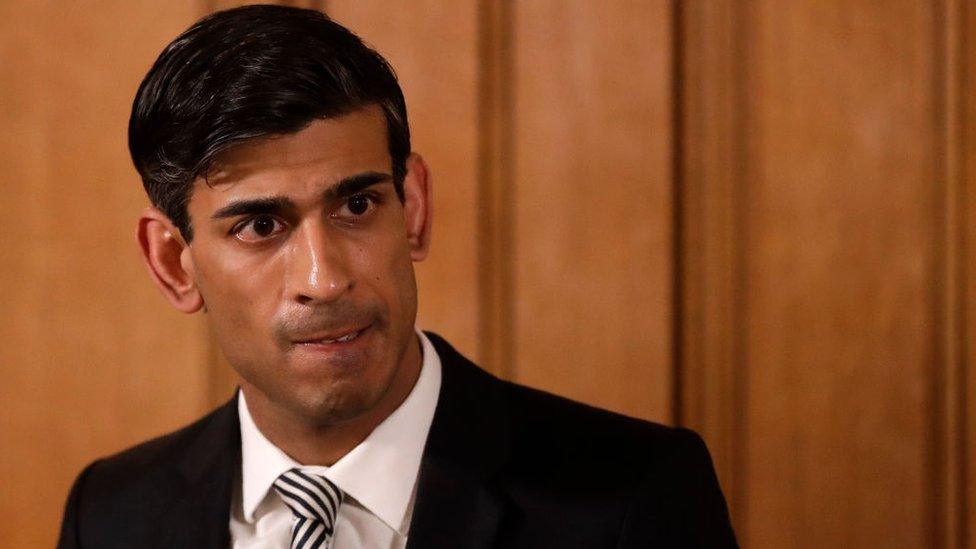
Chancellor Rishi Sunak described his subsidy package as 'unprecedented'
An astonishing week ended with Prime Minister Boris Johnson announcing all pubs and restaurants must close from Friday night - except for take-away food - to tackle coronavirus.
Mr Johnson used his daily briefing to announce all the UK's nightclubs, theatres, cinemas, gyms and leisure centres had also been told to close "as soon as they reasonably can".
In a separate development the UK government announced it would pay the wages of employees unable to work due to the pandemic.
The chancellor said the government would meet up to 80% of the salary costs for staff kept on by their employer, covering wages of up to £2,500 a month.
The "unprecedented" measures were aimed at stopping workers being laid off due to the crisis, Rishi Sunak said.
Meanwhile, Nicola Sturgeon warned that Scots were facing the "biggest challenge of our lifetimes" in the fight against coronavirus.
The first minister said there would be "difficult days ahead" as she confirmed compulsory closures of restaurants, cafes, pubs, gyms and cinemas.
But she said the crisis would pass if people followed health advice and looked out for each other.
21 March
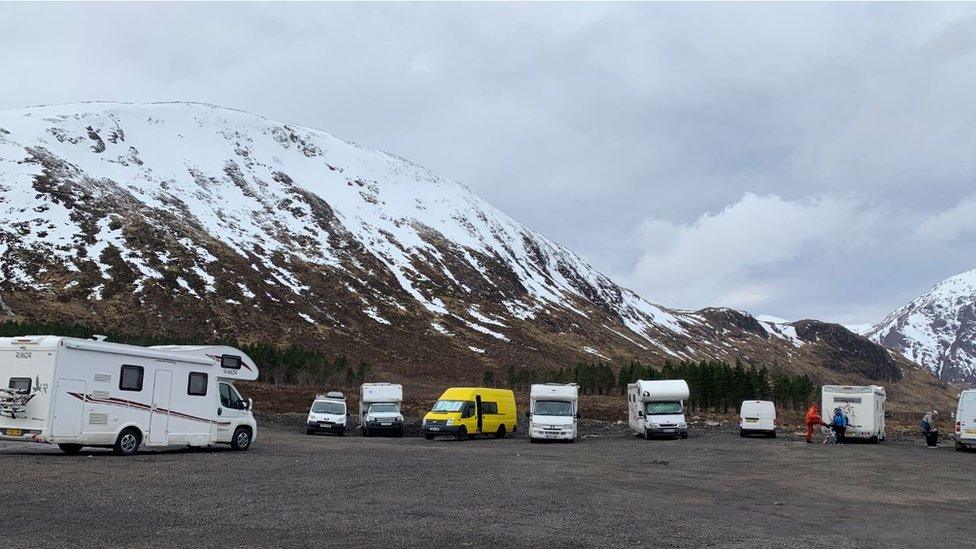
Campervan pictured in the Highlands on Saturday
Finance Secretary Kate Forbes urged people to stop travelling to the Highlands in a bid to avoid the coronavirus.
It follows reports of people with second homes or those with campervans travelling to the area.
Ms Forbes said people should not make the Highlands their "means of self-isolation".
As a seventh Scottish death from Covid-19 was confirmed, a doctor expressed concern over hygiene levels at the Queen Elizabeth University Hospital in Glasgow.
Meanwhile, the UK Government told shoppers in the UK to "be responsible" and think of others after panic-buying across the UK.
Westminster's Environment Secretary George Eustice said there was more than enough food to go around - but the challenge for shops was keeping shelves stocked.

EASY STEPS: How to keep safe
A SIMPLE GUIDE: What are the symptoms?
GETTING READY: What is the UK's 'delay' phase?
TRAVEL PLANS: What are your rights?
IN-DEPTH: Coronavirus pandemic

- Published5 July 2023
